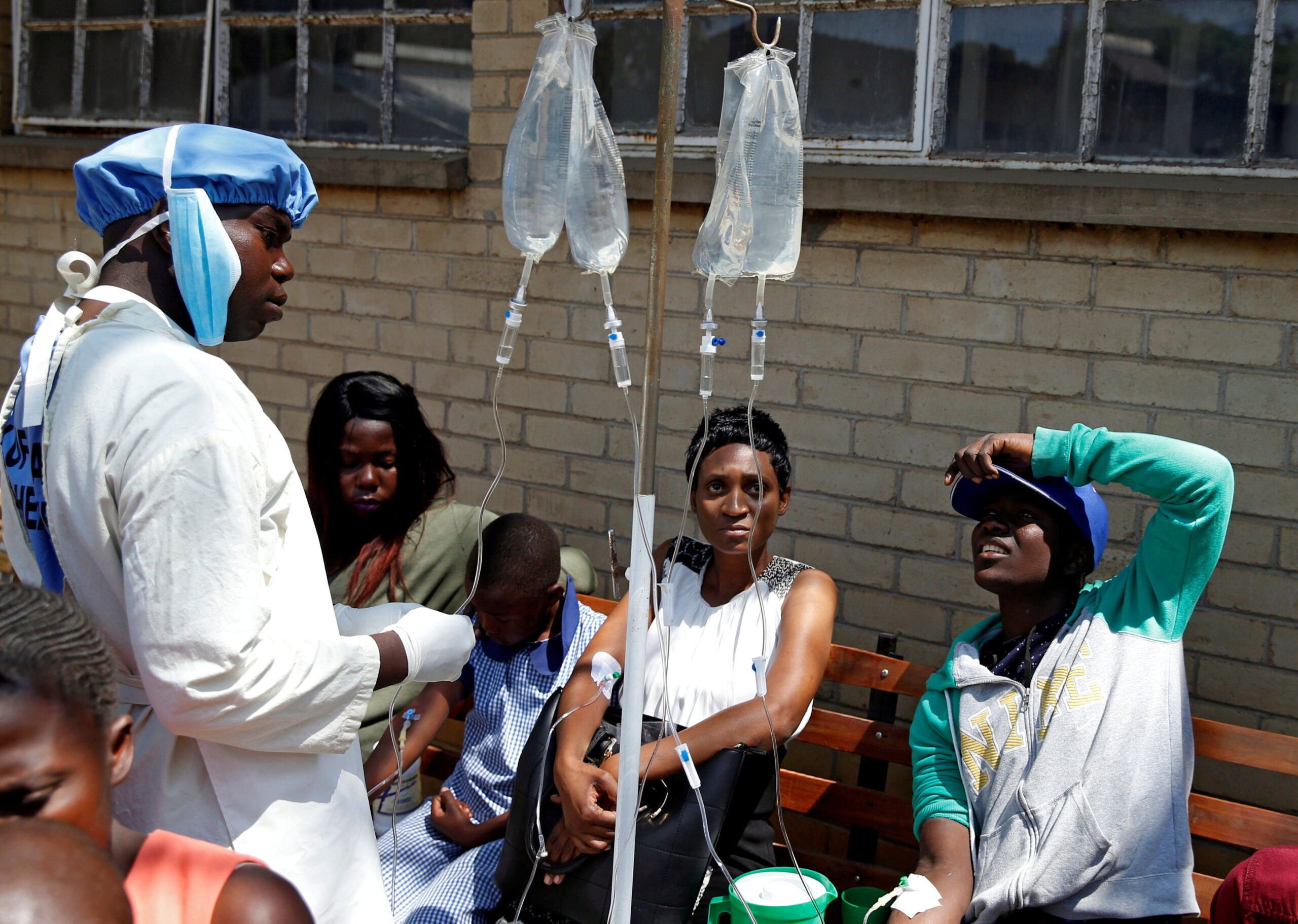
Zimbabwe cholera deaths at 24, drugs resistant: WHO

The death toll from a cholera outbreak in Zimbabwe has risen to 24 with first-line antibiotics struggling to treat the disease which has spread from the capital, a World Health Organisation report said Thursday.
“A cumulative of 24 deaths were reported from the onset of outbreak,” the report said, with 23 deaths in Harare and one death in the southeast district of Masvingo.
“There is resistance to the first-line medicine,” it added, with tests suggesting antibiotic drugs ciprofloxacin and ceftriaxone could be ineffective and the alternative drug azithromycin was not available.
“Relevant medicines should be purchased as a matter of urgency as soon as resistance patterns have been ascertained,” the situation report from WHO and the health ministry recommended.
The cholera outbreak, first detected in the township of Glen View outside Harare on September 5, has prompted the health ministry to declare an emergency in the capital.
With 1,901 suspected cases so far, the disease has spread to other towns as well as rural areas across the country.
Authorities have banned public gatherings Harare while health ministry personnel are supervising burials of victims.
Informal housing areas without running water have mushroomed, and basic infrastructure has collapsed due to years of neglect.
Tests from some wells and boreholes showed water was contaminated with cholera and typhoid-causing bacteria.
Zimbabwe, which was ruled by Robert Mugabe from independence in 1980 until his ousting last year, suffered its worst cholera outbreak in 2008.
A total of 4,000 people died and at least 100,000 people fell ill.
The WHO report said health personnel faced shortages of medicine and intravenous fluid, sewer blockages, lack of protective clothing and erratic water supplies.






